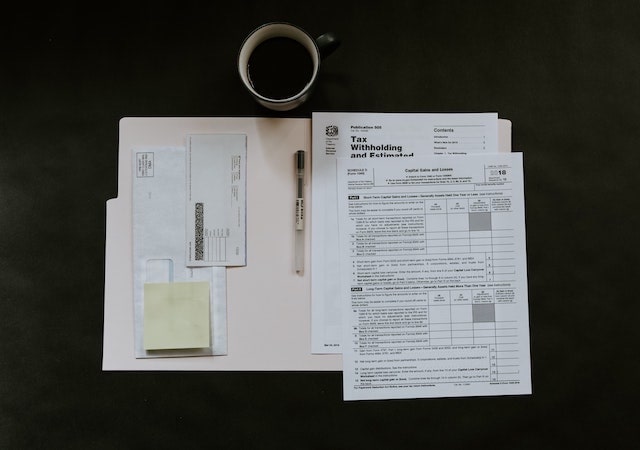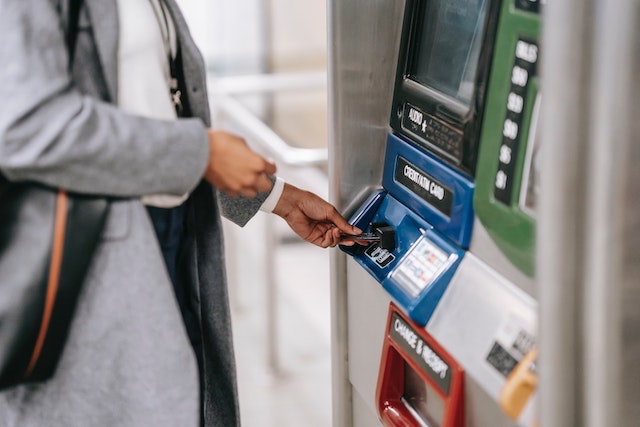Many new business owners start out by selling products or services on the side, while they work a full-time job. But at what point is it a good idea to open a small business bank account to handle income and expenses? Is it even necessary as a sole trader?
The Australian Tax Office notes that a separate bank account is not required if you are a sole trader.
But you must have one for tax purposes if you are a company, trust or partnership.
Even in the early days of a side hustle, a separate bank account can be useful for tracking expenses and income. Starting with a proper business account may save you the time and hassle of switching over later on.

Within this guide, we’ll explore the top benefits of opening a small business bank account, along with the differing factors that may impact your decision.
Keep reading to learn everything you need to know about opening a sole trader bank account.
The top 5 benefits of opening a small business bank account
Several advantages come with opening a small business bank account. Below, we’ll list five that could help boost your business’s growth and productivity.
1. Reduces your admin work in the long run
In the early days of starting a business, you may be hyper-focused on testing and tweaking your business operations.

Despite the early admin work, setting up a small business bank account is well worth it. You won’t need to change your payment details with customers later on and your bookkeeping will be more straightforward. As your business grows, it will be easier to outsource or delegate upkeep to an appropriate member of your team.
2. Adds transparency to your cash flow
Some business owners hold off opening a small business bank account for weeks, months, maybe even years. Instead, they continue to accept customer payments into their personal account.
At tax time, it becomes hard to sort out the mess of valid business expenses, like training, versus personal expenses such as grocery shopping.
Although you save a few dollars in bank account fees, it may not be worth the stress.
This kind of guesswork makes it hard to allocate funds towards things like upskilling or mastermind coaching. Not knowing what you can afford to invest in can slow your business growth.
From time to time, you may also get a nagging feeling about whether you can cover your tax instalments when they fall due.
You don’t need to bear that burden, especially when you can set up your business banking to ensure you meet your tax obligations. This will allow you to see instantly how much you can invest in yourself and your business.
Related: 14 valuable EOFY tax tips
3. Gives you a dedicated bank card for business transactions
Wondering whether your personal account or credit card has enough to cover business expenses? You can stop the guesswork by opening a dedicated small business bank account for your business transactions. This allows you to have a separate bank card, so you won’t have to dip into your personal savings to pay for work costs.

Once you start your business, write a simple business plan and start depositing proceeds from your freelancing into your small business bank account. You can also bootstrap if you’re able to. From there, you can invest, monitor and record your time and money wisely.
If it turns out you do require formal funding, a dedicated small business bank account often comes with access to a banking advisor. Other perks include financial products and bigger transaction limits.
4. Easily integrates with accounting software
The sooner you automate your business processes, the quicker you regain time to work on growing your business. This is especially true if you plan on running your business using spreadsheets and manual invoices.
Rather than administering your operations manually, try integrating your small business bank account with an accounting software.
This will help save huge amounts of time compared to standard personal accounts. Plus, they often come with additional features and reporting options.
5. Establishes a business mindset
Many excellent businesses start out accidentally. Some take a great idea and execute it well. Others begin with unique, creative thinkers testing out products and services on family and friends. Often, these ventures commence on a relatively informal basis.

Although some ideas take off at a rate of knots, you may need consistent effort to build up awareness and demand. For suppliers, customers and prospects to take your business seriously, your approach to money needs to reflect your intentions.
A small business bank account is a good sign you are formalising your aspirations.
Establishing a separate bank account is a statement to yourself, your stakeholders and the taxman that you are committed to making your business idea work.
Why the hesitancy by sole traders and freelancers?
Many sole traders and freelancers resist opening a separate small business bank account because of concerns like:
- Unnecessary fees
- Additional admin
- Cybersecurity
- Decision paralysis about the range of options on offer
Putting off a decision about opening a sole trader bank account can cause complexity down the track.
Freelancers weigh out their options
Recently, an Australian freelance writer asked their online bank if they could get a bankcard for the savings account their clients paid into. Having a bankcard attached to this savings account would allow the freelancer to streamline their business transactions.
However, the writer was promptly told it’s against the rules to use their savings account in this way. The banker also informed the writer that they do not provide business accounts.
As a result, a private community of writers began an online discussion on the subject. The stories that emerged included challenges around:
- Tedious manual input of receipts
- Insufficient funding for tax instalments
- Difficulty integrating with accounting software
The overriding consensus between the writers was that an average of $10 a month in account fees was worth it. They believed a sole trader bank account provided more ease and convenience.
Navigating bank fees
There are several small business bank accounts to choose from and most have minimal or zero monthly charges. This, of course, depends on your requirements.
There are a variety of transaction fee structures to choose from like:
- Zero monthly bank fee with limited value-add services. These services include things like additional cards or accounts.
- Higher monthly bank fee and low, or nil, teller transaction fees
- Lower monthly bank fee and higher teller transaction fees
Determine whether you prefer a fixed monthly charge, variable transaction fees or can get away with neither.
Your decision depends on the value and volume of transactions you have. Make sure to consider the following questions:
- How do you pay suppliers?
- What type and volume of customer transactions do you have?
- How often do you need to interact with a bank teller in person?
In 2021, you can expect to pay between nil and $25 in monthly fees. You could also pay up to around $3 in assisted transactions. Additional charges will apply for other products like:
- Overdrafts
- Loans
- BPay
- Merchant facilities
Remember, the viability of your business won’t be riding on bank fees. These should be a minor part of your business expenses.
The easiest way to open a small business bank account
The easiest way to set up a small business bank account is to apply to the bank where you already hold your personal or mortgage bank accounts. You can usually cut down on some of the admin involved because they’ll already have your identity confirmed.
The downside is you may miss out on a better or less expensive bank account elsewhere.
Finding an inexpensive small business bank account
Several banks offer options with no monthly account fees. It’s worth the extra effort in research as long it doesn’t result in analysis paralysis.
Check the overall fee structure for things like teller transactions fees.
Sometimes paying a higher monthly charge to include these in your business bank service is more cost-effective.
Here is a handy comparison site that can save you valuable time.
Banking ethically
Choosing a bank that supports eco-friendly practices and social responsibility issues may be important factors for you to consider. Depending on your values, you could go with one that aligns with your brand or business.
Some examples of ethical banking include ones that support:
- Social and sustainable infrastructure
- Renewable energy and energy efficiency
- Sustainable land and agricultural management
Here are some groups that can help you find banking services that align with your values and aspirations.
The ideal small business bank account structure
Every business is different, but the good ones are subject to taxes. The way you set up your finances can help ensure your cash flow is positive.
One of the simplest options is to set up a small business bank account with an associated savings account.
Every time you receive a customer payment, transfer a percentage of the amount to the savings account.
This will help to cover you at tax time.

You can pay yourself by transferring funds to your personal bank account, then keep the remainder for business purposes. Both amounts will be visible at a glance.
Some overseas financial advisors advocate splitting your cash between several accounts. Dedicating these accounts to different expense types can make budgeting easier. But in Australia, this type of sub account structure isn’t common. It also may be unnecessarily expensive.
One core bank account with a savings account attached is normally sufficient to cover the essentials in the early days.
Final takeaways
If in doubt, follow the advice of the Australian Tax Office about business banking. Then, make sure you read and understand the terms and conditions of any bank account you open for your business.
Opening a dedicated small business bank account, fit for purpose, makes a lot of sense.
If you’re serious about establishing a growing and profitable business long term, this is the best way to go.
However, do enough research to understand the costs and benefits for your circumstances. The purpose of this article is to provide options and avenues to consider when reviewing bank accounts. If in doubt, check with your financial advisor.
This post should not be taken as legal or financial advice. Always consult legal, financial and other relevant professionals before undertaking a merger or acquisition.






